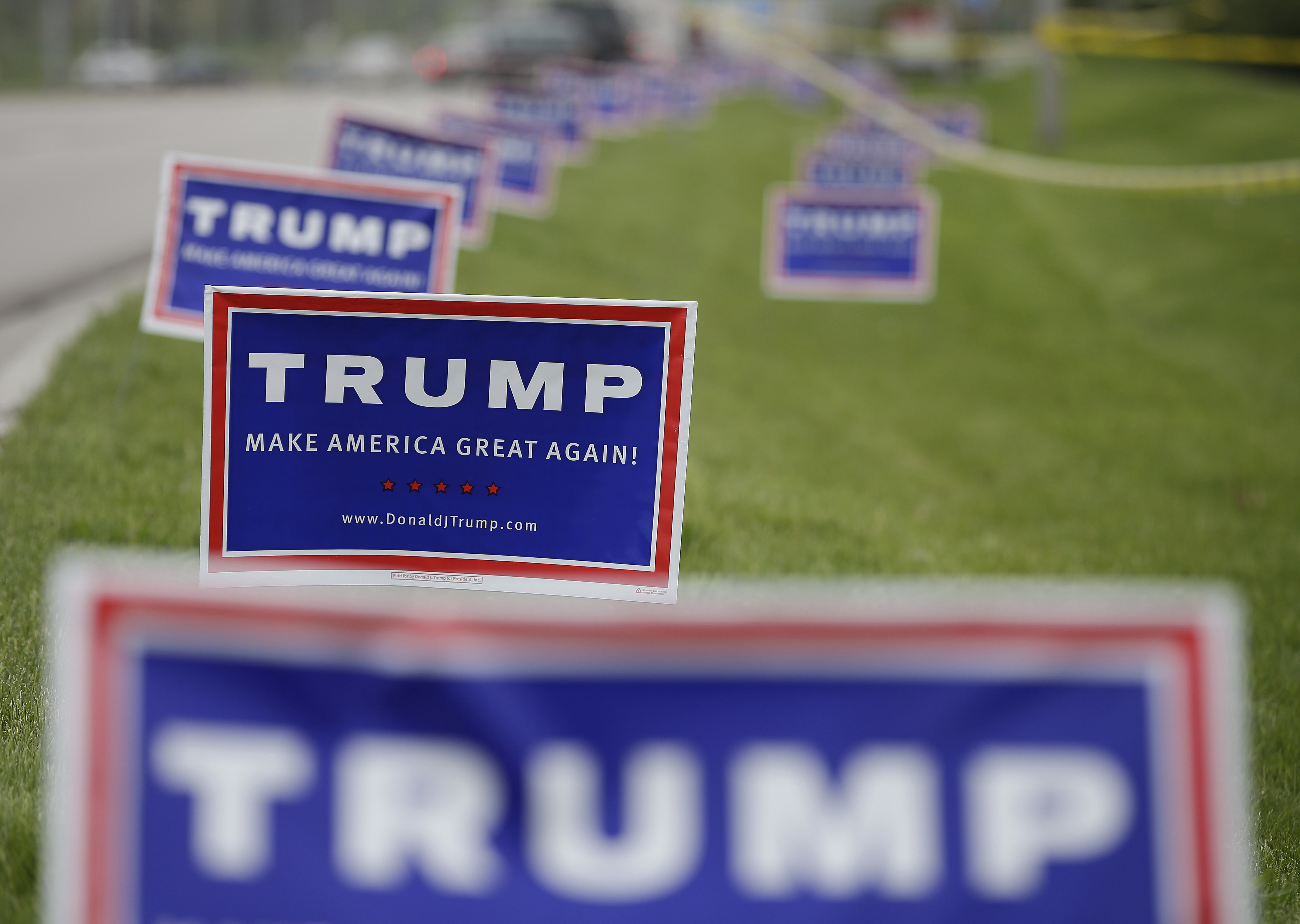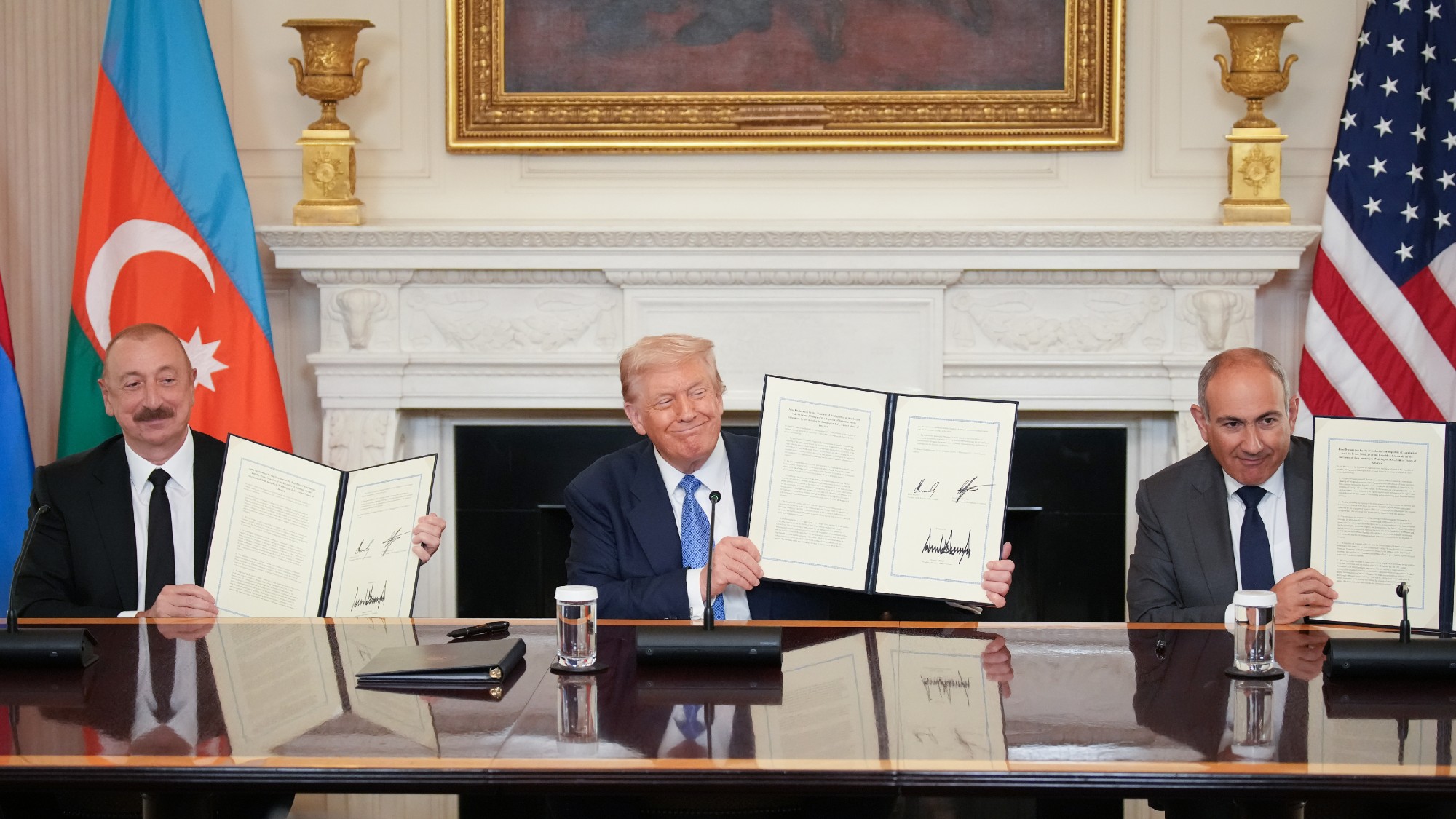Why don't GOP voters care about electability anymore?
Republicans have voted for the presidential candidate who was perceived to be more electable in every primary campaign since 1988. Not this time.


Why do Republican primary voters seem hell bent on nominating the man with the weakest chance of winning the general election?
Donald Trump just demolished Ted Cruz in Indiana, chasing the Texas senator from the race. He is clearly exceeding expectations in primaries and polling. After months of reporting about a contested convention, it now looks like the billionaire will simply win the Republican nomination outright long before the GOP converges on Cleveland in July. He is clearly now the presumptive nominee.
So yes, things are really going Trump's way. But these victories might be ephemeral. Because with the full electorate that will turn out in November, Trump's unfavorable numbers are off the charts. In April, Morning Consult found that 60 percent viewed him unfavorably to 36 percent favorable. A YouGov/Economist poll pegged his numbers as 63 percent unfavorable, 33 percent favorable. Suffolk University: 61 percent unfavorable and 28 percent favorable.
Subscribe to The Week
Escape your echo chamber. Get the facts behind the news, plus analysis from multiple perspectives.

Sign up for The Week's Free Newsletters
From our morning news briefing to a weekly Good News Newsletter, get the best of The Week delivered directly to your inbox.
From our morning news briefing to a weekly Good News Newsletter, get the best of The Week delivered directly to your inbox.
Hillary Clinton is also deeply unpopular. The only presidential candidate in history with worse favorability numbers than her since this data has been gathered? Donald Trump.
Accordingly, Trump fares the worst against Clinton in head-to-head matchups conducted by pollsters. He spent most of April trailing the Democrat by double digits and the one recent survey where he is ahead only gives him the lead by eliminating the option for staying home.
Today's Republicans quite literally aren't voting based on electability. Indeed, despite Trump's promise to help America stop losing and start winning, winning in November hasn't been the number one priority of Republican primary voters, according to most exit polls.
Going all the way back to New Hampshire, winning in November ranked last out of four most important candidate qualities, picked by just 12 percent of voters, who went for Trump by just four points over the since-vanquished Marco Rubio.
A free daily email with the biggest news stories of the day – and the best features from TheWeek.com
In South Carolina, 47 percent of voters who picked electability went with Rubio — but only 15 percent picked electability as their top priority. Rubio was knocked out of the race in Florida, where a mere 10 percent said winning in November was their top candidate quality and 51 percent of them voted for Trump.
In New York, Trump rolled up 60 percent of the vote — and only 11 percent said winning was most important. "Can bring needed change" was the top choice at 35 percent while "shares my values" and "tells it like it is" were tied at 26 percent apiece.
In most primaries where exit pollsters asked, Republicans cared more about telling it like it is, bringing needed change, and finding a candidate who shares their values than the party's November prospects.
This is a big change. Republicans have voted for the presidential candidate who was perceived to be more electable in every primary campaign since 1988. They have won only three times, with two men named Bush, winning the popular vote in that span only twice. Just one of those wins could be fairly characterized as a landslide — and that was against Michael Dukakis.
The GOP is coming off back-to-back losses to Barack Obama, a Democrat many rank-and-file Republicans voters think (fairly or not) was easily beatable, despite John McCain and Mitt Romney being the electable nominees.
Electability is a zero-sum commodity. It's no good if you don't actually win the election.
When Republicans do win elections, as they did in the midterms of 2010 and 2014, grassroots conservatives don't see much changing. At best, there is gridlock, which pragmatic and moderate Republicans — a surprising number of whom have voted for Trump ��� find distasteful. At worst, they cannot roll back Democratic initiatives like ObamaCare or the president's executive actions on immigration, which conservatives find outrageous.
All of this arguably has more to do with the structure of our government, which makes rapid change difficult under any circumstances and nearly impossible without control of the executive as well as the legislative branch, than Republican perfidy.
That would be an easier case to make, however, if there were more to show for the last time Republicans had unified control of the federal government, from 2005-07. Add in overpromising in the run-up to the last two midterms, Tea Party versus establishment sniping, and the GOP's ambivalence about its biggest contribution to federal spending control under Obama (the sequester), and it puts the Republican base's mood in perspective.
In embracing a candidate who says America doesn't win anymore, Republicans stopped caring about winning — and now there's a good chance they'll lose.
W. James Antle III is the politics editor of the Washington Examiner, the former editor of The American Conservative, and author of Devouring Freedom: Can Big Government Ever Be Stopped?.
-
 The Week Unwrapped: Has Donald Trump secured his Nobel Peace Prize?
The Week Unwrapped: Has Donald Trump secured his Nobel Peace Prize?Podcast Plus, what does the use of North Korean and Indian labour tell us about the Russian war economy? And why have we all gone crazy for pickles?
-
 Hurricanes are not exclusive to Earth. They can happen in space.
Hurricanes are not exclusive to Earth. They can happen in space.Under the radar These storms may cause navigational problems
-
 Sudoku medium: August 15, 2025
Sudoku medium: August 15, 2025The Week's daily medium sudoku puzzle
-
 Ghislaine Maxwell: angling for a Trump pardon
Ghislaine Maxwell: angling for a Trump pardonTalking Point Convicted sex trafficker's testimony could shed new light on president's links to Jeffrey Epstein
-
 The last words and final moments of 40 presidents
The last words and final moments of 40 presidentsThe Explainer Some are eloquent quotes worthy of the holders of the highest office in the nation, and others... aren't
-
 The JFK files: the truth at last?
The JFK files: the truth at last?In The Spotlight More than 64,000 previously classified documents relating the 1963 assassination of John F. Kennedy have been released by the Trump administration
-
 'Seriously, not literally': how should the world take Donald Trump?
'Seriously, not literally': how should the world take Donald Trump?Today's big question White House rhetoric and reality look likely to become increasingly blurred
-
 Will Trump's 'madman' strategy pay off?
Will Trump's 'madman' strategy pay off?Today's Big Question Incoming US president likes to seem unpredictable but, this time round, world leaders could be wise to his playbook
-
 Democrats vs. Republicans: which party are the billionaires backing?
Democrats vs. Republicans: which party are the billionaires backing?The Explainer Younger tech titans join 'boys' club throwing money and support' behind President Trump, while older plutocrats quietly rebuke new administration
-
 US election: where things stand with one week to go
US election: where things stand with one week to goThe Explainer Harris' lead in the polls has been narrowing in Trump's favour, but her campaign remains 'cautiously optimistic'
-
 Is Trump okay?
Is Trump okay?Today's Big Question Former president's mental fitness and alleged cognitive decline firmly back in the spotlight after 'bizarre' town hall event
